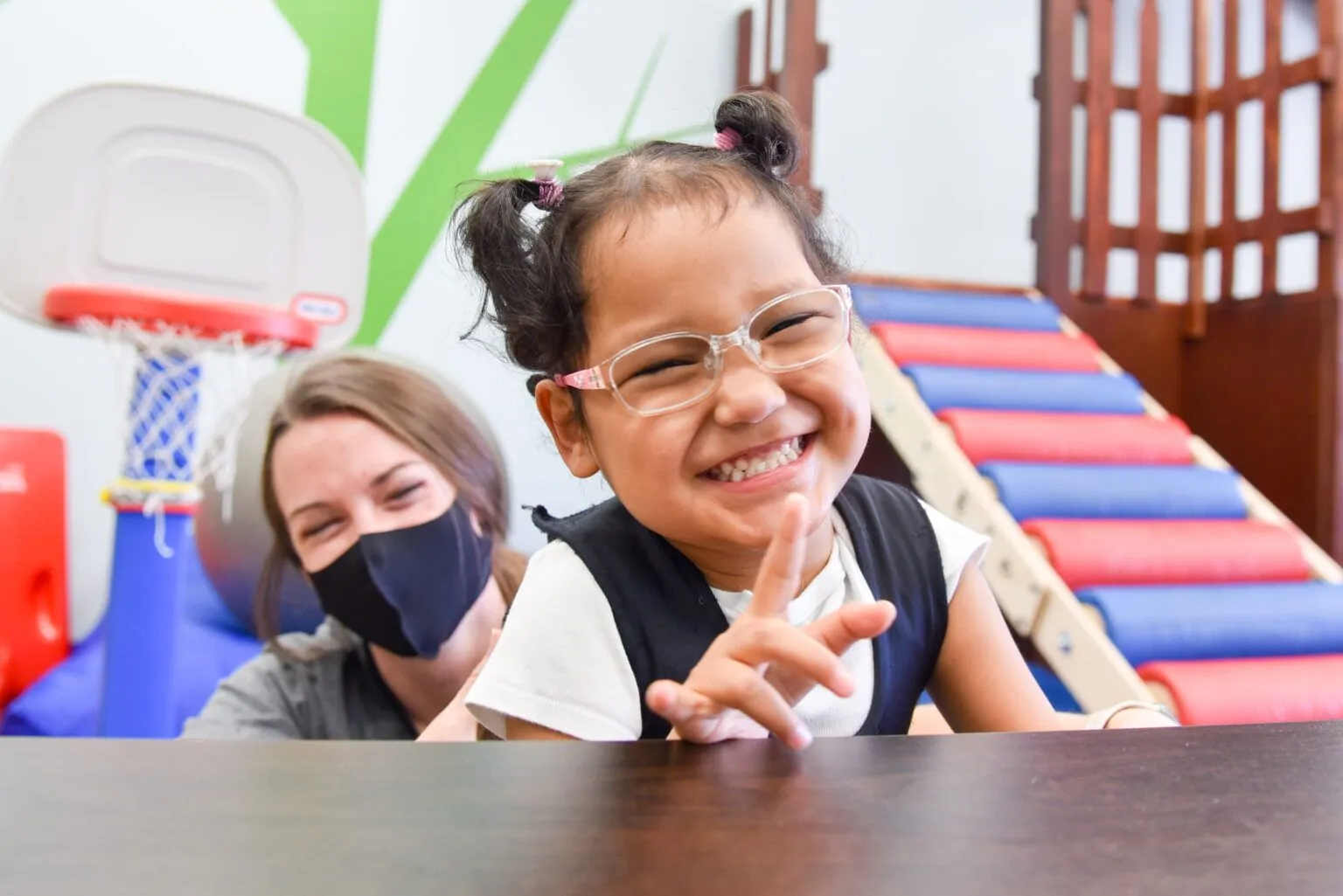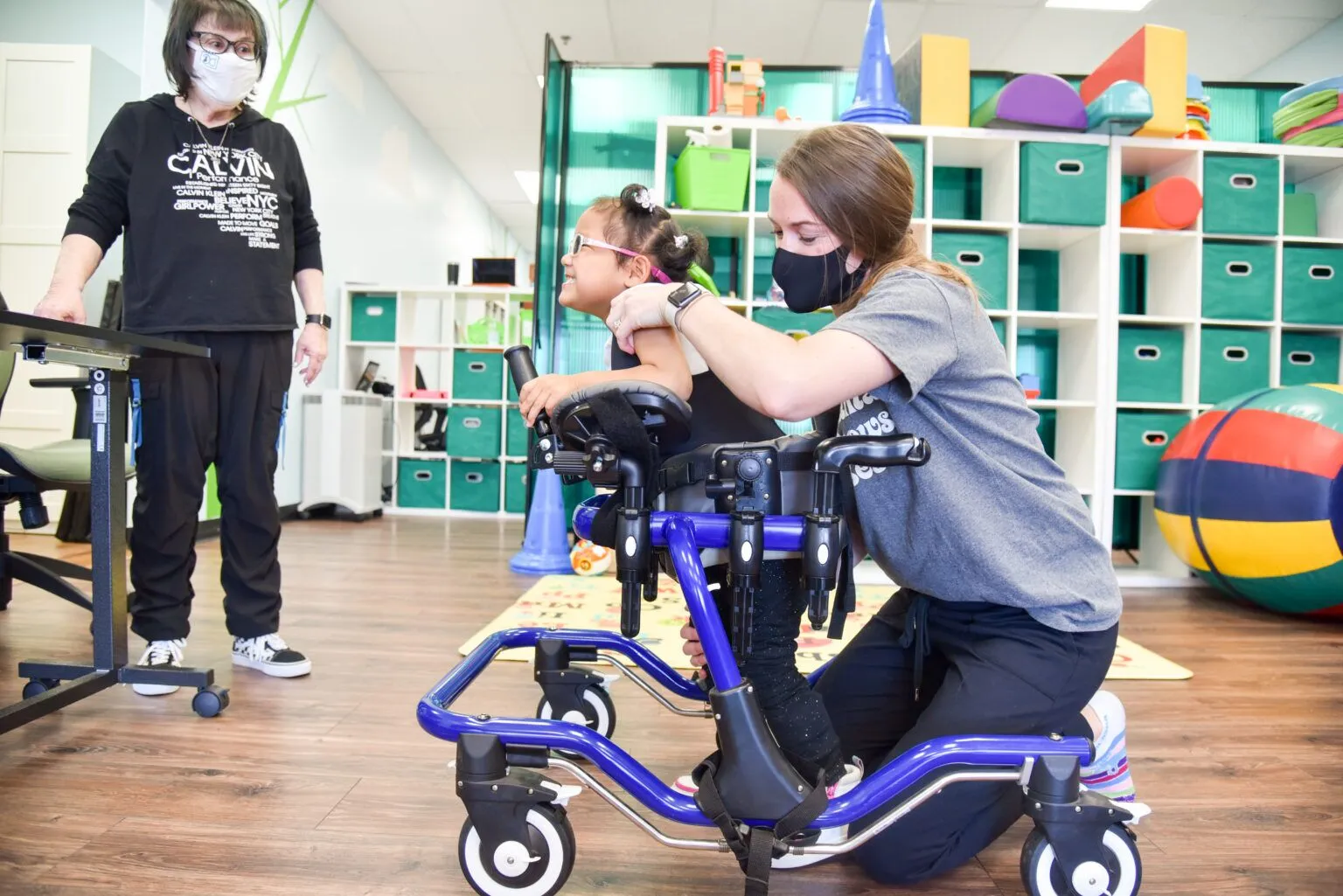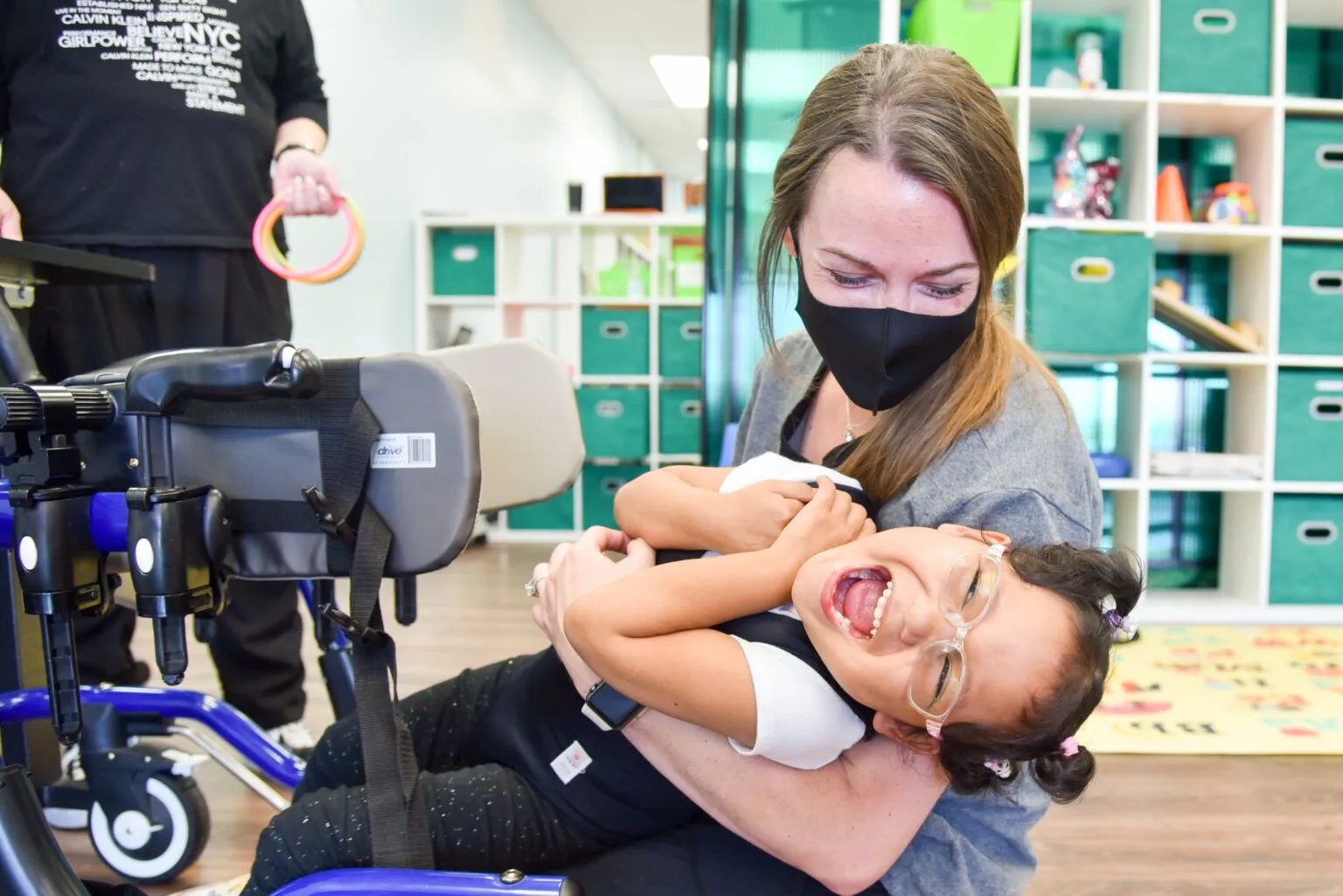Playtime helps all children to develop fine motor, gross motor, cognitive, emotional, and communication skills.
Here are 5 suggestions when it comes to children with cerebral palsy and playtime.

1. Use an open and safe space for floor time so the child can explore.
Play therapy can take place in several settings, some of which are therapeutic settings, and others that are more informal. It can take place at rehabilitation centers, educational environments, community centers, playgrounds, or in a child’s home. Play happens indoors and outdoors.
Play therapy should always take place in areas that are safe – meaning that modifications often need to be made based on a child’s physical and developmental needs.
2. Provide open-ended equipment that has multiple uses.
Usually play equipment is too challenging or not challenging enough so try to find things in between that will help children master motor play.
Here are some examples of play therapy equipment to use:
- Soft clay
- Pencils, markers, crayons, and paintbrushes with a foam grip
- Costumes with Velcro closures
- Large beads and course string
- Sand trays
- Textured toys
- Brightly-colored games
- Simple musical instruments and bells

3. Be respectful and observant of a child’s sensory preferences.
- Talk therapy
- Conversation to engage a child
- Story time involving books that support positive messages
- Animal interaction
- Human interaction with children and peers or adults with authority
- Family time

4. Vary positions during playtime consistently.
5. Keep it fun!
Always switch up playtime methods to keep them fun and interesting. With this children will be motivated more to play and learn.
Playtime helps children with Cerebral Palsy express themselves. Play with purpose has also been a proven method for mental health professionals – and parents and caregivers – to learn more about how a child interacts within their environment and what their self-concept is.
Benefits of playtime include increased self-confidence, improved decision-making increased learning, increased relaxation and decreased feelings of separateness.
The family of a child with Cerebral Palsy, also benefits by learning how to play and interact with the child in a way that delivers enjoyment and bonding for everyone.
These are very simple suggestions to try at home with your child and will improve their overall skills!
Article attributed to https://www.yourtherapysource.com/blog1/2017/02/04/children-cerebral-palsy-playtime/
